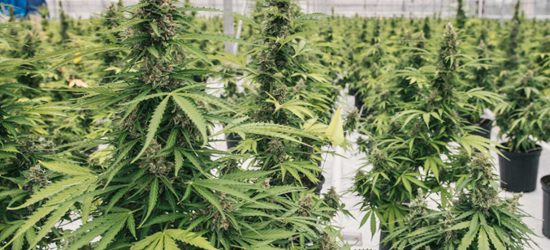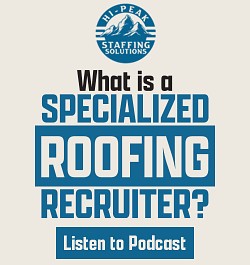WSRCA ROOF TALK: Reefer and Roofers - The Impact of Legalization of Marijuana

Courtesy of: Trent Cotney, Cotney Construction Law.
Regardless of one’s opinion on the matter, it is becoming apparent that Marijuana is here to stay.
While many states have legalized Marijuana for both recreational and medicinal purposes, what is unclear are the potential liabilities for an employer whose employees are actively using the drug, particularly at work. Questions arise such as can you require that your employees don’t use marijuana at all? Due to the inherent dangers involved in the roofing industry, an employer has real and justified reasons for not wanting his or her employees to be under the influence while on the job. Unlike alcohol, testing for marijuana has a way to go and as more and more states legalize the drug, the issues already present will only be further complicated.
Currently 30 states and the District of Columbia have legalized either recreational or medicinal use of marijuana. During the 2016 election cycle, California, Maine, Massachusetts and Nevada joined Alaska, Colorado, Oregon, Washington, and the District of Columbia legalizing marijuana for recreational use. Vermont is the first state to legalize recreational marijuana through state legislature and the law went into effect on July 1, 2018.
While certain states allow recreational and medicinal marijuana use, the drug is still illegal at the federal level. This divergence between state and federal law creates a variety of unique issues for employers. Due to marijuana being illegal at the federal level, those working under a government contract or for a federal employer are prohibited from using marijuana in any way (even if it is for medicinal purposes). This prohibition extends to both on site use as well as off-site/at-home use. Accordingly, under federal law, the roofer employer has the ability to fire an employee for failing a drug test under the aforementioned federal work conditions.
If you’re an employer working under a federal contract, then the law is quite clear. Handling marijuana usage for roofers on private and state projects, however, is quite hazy (no pun intended). Two of the biggest issues still up in the air include: employees arriving to the job under the influence of marijuana, and zero-tolerance drug policies. A number of other state courts have upheld employers’ right to continue to implement zero-tolerance policies. This results in employers likely being able to continue to enforce their zero-tolerance drug policies.
Since marijuana use impairs an individual’s motor functions, employers who have employees who operate machinery, vehicles, or other type of equipment will certainly not want them doing so under the influence of marijuana. Further, there is not presently a method for testing whether an individual is currently under the influence of marijuana. Drug tests simply show that the individual has used marijuana within the past 30 days (the length varies by different testing methods). These are further reasons to continue to drug test employees and enforce zero-tolerance policies when it comes to on-site safety.
While other state courts have upheld an employer’s right to discipline employees for failing a drug test for marijuana use, employers should still be wary of how courts will respond to the implementation of both recreational and medicinal marijuana laws. Further, state legislatures and other administrations have stated they will continue to provide updates and guidance on how marijuana laws will affect roofing employers/employees.
Editor’s note: This article first published on the WSRCA Roof Talk blog and can be viewed here.
Author’s note: The information contained in this article is for general educational information only. This information does not constitute legal advice, is not intended to constitute legal advice, nor should it be relied upon as legal advice for your specific factual pattern or situation.
Trent Cotney, CEO of Cotney Construction Law, is an advocate for the roofing industry, General Counsel of Florida Roofing & Sheet Metal Contractors Association (FRSA), Roofing Technology Think Tank (RT3), Tennessee Association of Roofing Contractors (TARC), and several other local roofing associations. For more information, contact the author at 866.303.5868 or go to www.cotneycl.com.






















Comments
Leave a Reply
Have an account? Login to leave a comment!
Sign In